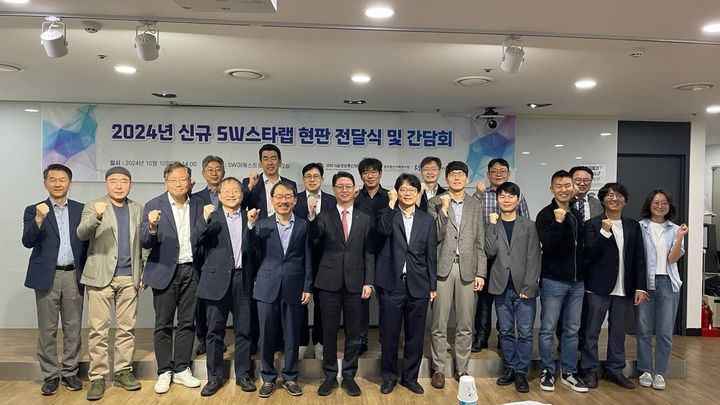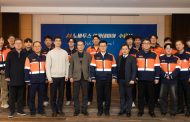The Department of Industrial Engineering at UNIST is proud to announce that Professor Chiehyeon Lim has been awarded the National SW STAR Lab (Software Technology Advanced Research Lab) project grant by the Institute of Information & Communications Technology Planning & Evaluation (IITP). Funded by the Ministry of Science and ICT (MSIT), this grant represents a significant milestone for the department, allowing it to focus on artificial intelligence research and talent development over the next eight years.
The SW Star Lab project supports research in core software technologies such as artificial intelligence, cloud computing, and algorithms. UNIST is joining other major universities, including KAIST, POSTECH, Seoul National University, and Korea University, in this collaborative initiative.
On November 8, the Service Intelligence Lab within the Department of Industrial Engineering at UNIST presented its “Measures to Improve the Robustness and Generalizability of AI” at the 2024 ICT R&D Future Week & SW Technology Forum. The laboratory emphasized the necessity for AI technology to possess generalization capabilities to adapt flexibly to data changes and operate reliably in new situations if it is to be effectively applied in industry and society.
Through the SW STAR Lab project, the laboratory aims not only to develop foundational AI technologies, but also to establish practical datasets and develop and disclose foundational models.
This marks UNIST’s inaugural participation in the SW STAR Lab project, paving the way for the selection of additional laboratories in the future. Professor Lim stated, “The selection of this project is a testament to our department’s ongoing commitment to research and education aimed at addressing industrial and societal challenges.”
Sungil Kim, Head of the Department of Industrial Engineering at UNIST, added, “We will prioritize the cultivation of high-quality talent capable of applying optimization, statistical knowledge, and artificial intelligence technologies to real-world industries and societal needs.”
Over the past eight years, the SW STAR Lab project has produced more than 400 master’s graduates and 200 PhD recipients. Notably, the initiative has strengthened its position in the field of software research in Korea by publishing over 60 SCIE-level papers and participating in approximately 90 academic conferences annually. Furthermore, it contributes to related industries and academia by disclosing around 60 software technologies on GitHub each year. For more information about the SW STAR Lab project, please visit the official website at [http://swstarlab.kr/].







![[2026 Matriculation] UNIST Welcomes Class of 2030!](https://news.unist.ac.kr/wp-content/uploads/2026/02/사진-박종래-UNIST-총장이-2026년-입학식사를-전하고-있다-2-190x122.jpg)
![[2026 UNIST Commencement] UNIST Confers Degrees to 883 Graduates](https://news.unist.ac.kr/wp-content/uploads/2026/02/사진-2026학년도-UNIST-졸업생들이-학사모를-위로-던지며-졸업을-축하하고-있다-1-800x413-190x122.jpg)



